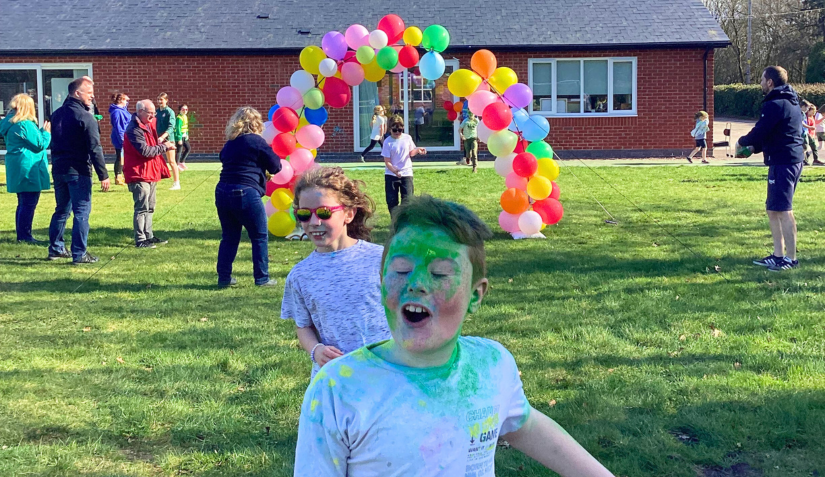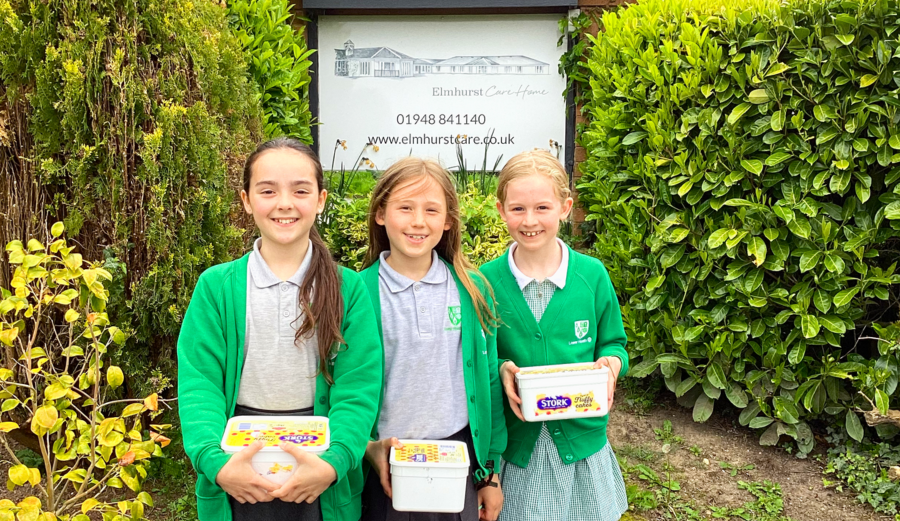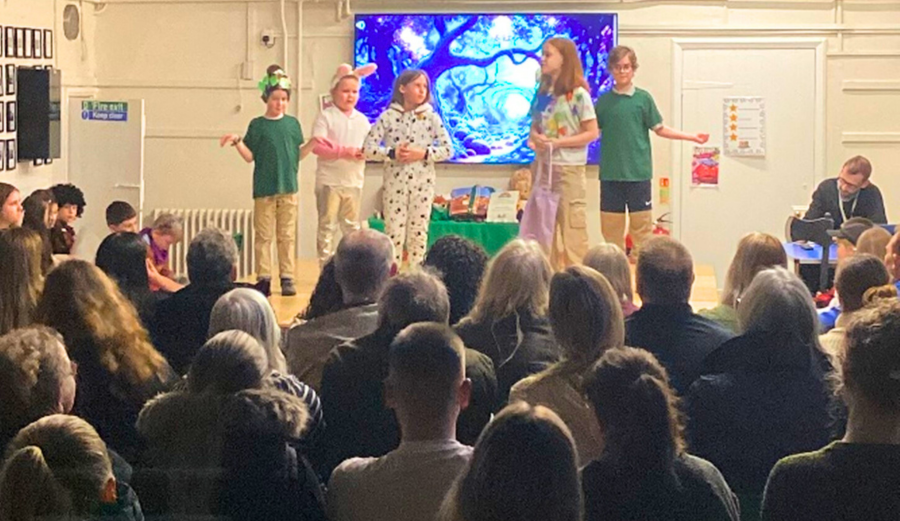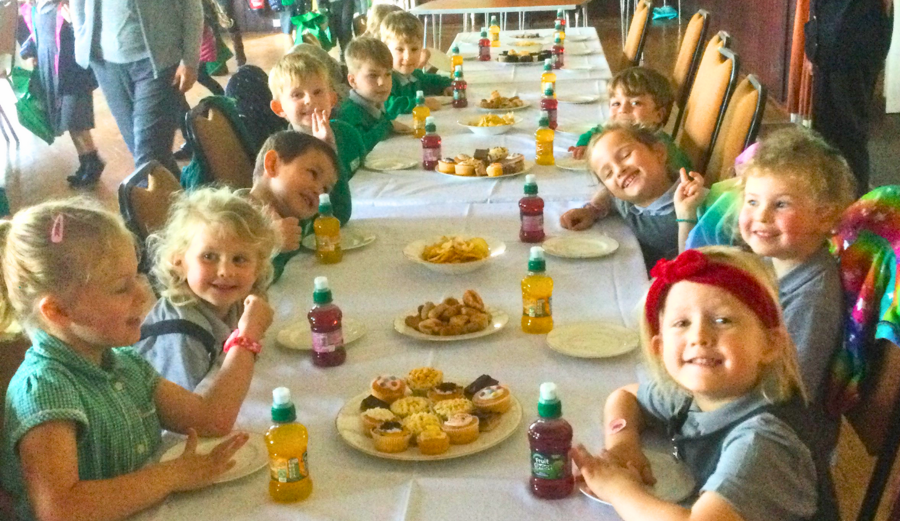SIAMS Inspections
Part of being a Church of England school requires us to be inspected by the ‘Statutory Inspection of Anglican and Methodist Schools’ (SIAMS). SIAMS inspections are carried out under section 48 of the 2005 Education Act. They involve the inspection of RE, collective worship, and spiritual, moral, social and cultural education in Church of England and Methodist schools and academies in England. You can find a copy of our previous inspection here – SIAMS Report.
1. How does the school’s theologically rooted Christian vision enable pupils and adults to flourish?
At Lower Heath, we believe that every child should have the chance to access a range of experiences and achieve success. Our vision of ‘Let your light shine’ ensures we provide opportunities for whole class music lessons, sports clubs, outdoor learning, craft clubs and residential trips amongst others across the children’s time at school. These experiences, alongside our engaging curriculum, allow for children to flourish academically, creatively, socially, mentally and physically, developing confidence, a sense of accomplishment and an understanding of health and wellbeing for all.
Through our theological vision of ‘Let your light shine’, children and adults are encouraged to interact in a supportive and caring way. This is evidenced at playtimes, where children look after one another and use our ‘Fellowship Bench’ to ensure all children feel included. Our buddy system is used in various ways through school to allow all children to form relationships with children in different year groups, helping them to feel comfortable and confident at whole school playtimes.
Celebration assembly is held every Friday and recognises varied achievements. This includes activities in and outside of school and allows the children to be championed for their own skills and talents in front of friends and family members. We believe this to be essential in allowing us to build relationships with our children and their families and to celebrate the different ways in which they are developing and flourishing.
2. How does the curriculum reflect the school’s theologically rooted Christian vision?
Our five Christian Values of love, respect, faith, thankfulness and fellowship run through every aspect of our curriculum, shaping the provision that we offer.
We aim for all our children to meet their potential in all areas of the curriculum. We have high standards of all stakeholders and expect adults to be role models in attitudes to learning and behaviour. We have high standards in relation to behaviours, teaching children to do the right thing, even when no-one is looking. Children are taught that love can include working alongside others and helping those that are hurt within our school setting, but also includes seeing ways that they can support their local, national and global communities.
Children are taught our Christian values through acts of worship and these are woven through our RE and PSHE curriculum. The values underpin the Bible stories of:
The Lost Sheep – Love
Moses and the Burning Bush – Respect
The Story of Noah – Faith
The Ten Lepers – Thankfulness
Esther – Fellowship
Children are encouraged to think about how we can serve others, both in school (for example through our buddy system) and in the wider community through our courageous advocacy projects (e.g. Super Fun Colour Run).
Community:
At Lower Heath, we recognise our role in establishing ideas of citizenship and community. Children are encouraged to develop community spirit to maintain our facilities and learning environments, school recycling champions. We also aim to foster links with the wider community, taking groups to Elmhurst Care Home and raising money for identified charities such as Shropshire Mental Health Support. Through English lessons, geography and collective worship, children are challenged to consider environmental issues affecting our global community and our role in creating a more sustainable future for all. Through actions such as these, children can see how service and sacrifice demonstrates our love for our neighbours in our local and wider community.
Life skills:
As well as developing life-long learning skills, our curriculum aims to equip our children to be independent, functioning members of society. Our Science, Design and Technology, Personal, Social, Health and Economic and Physical Education curricula are designed to teach children about the importance of keeping their minds and bodies healthy, through exercise, diet and mental health and wellbeing. Our Children’s Health Project teaches children about four pillars of health (nutrition, movement, thoughts and habits), STEM days help to develop skills such as engineering and botany and we teach children about the responsibilities they will encounter as adults, such as finances and relationships. By explicitly teaching the children about the skills they will need to develop for adulthood, we are guiding them to become a part of a caring community.
Wider opportunities:
We believe that all children should have a chance to excel and develop skills in a range of areas beyond those learnt in a classroom environment. Our curriculum is designed to ensure that children have an opportunity to experience a wide range of activities to enthuse and excite them. Throughout their time at our school, all children have chance to perform through productions, assemblies and the nativity, bringing the school and parental communities together in celebration. We collaborate with other schools through the linking schools project, which encourages the children to develop skills of working in partnership with others from a varied community. All children take part in outdoor learning in our community created Allwood World, learning the importance of looking after nature and how this can benefit both our current neighbours and future generations. Our buddy system provides support for our youngest children and welcomes them into our school community, whilst also teaching older children valuable skills of service for the benefit of others. Whole class instrument lessons challenge children to learn to work together as one group. Annual residential trips allow children to develop resilience and responsibility in a different environment. Here, children are encouraged to show ways of supporting their peers though helping with organisation, or emotional support to encourage one another to reach their goals and experience the sense of community outside of their familiar settings.
3. How is collective worship enabling pupils and adults to flourish spiritually?
Our Christian values are promoted through our assembly themes for each half term. Children are invited to reflect on what Jesus taught about embodying the values and how they can apply the values to their lives. Children share their understanding and the ways in which they demonstrate these qualities using the ‘windows, mirrors, doors’ metaphor.
Our Christian values have been chosen to reflect the qualities we believe will enable the children to care for themselves and all their neighbours. During key Christian festivals of Harvest, Easter and Christmas, the children visit Holy Immanuel Church and take part in collective worship with the wider community. Here, they lead us through the spiritual messages central to the festivals and reflect on their significance for our school and community today. In addition, Reverend Armstrong visits regularly to deliver collective worship in line with our themes and values and Steven Jones from Checkpoint leads our weekly ACE (A Christian Ethos) Club. Bible stories and hymns have been linked to each of our Christian values to promote spiritual development for our whole school community. Children are encouraged to create their own prayers and to lead others through this within classrooms.
4. How does the school’s theologically rooted vision create a culture in which pupils and adults are treated well?
Our school vision of ‘Let your light shine’ centres on the idea that we should care for and about others and treat them in a way that demonstrates this. Assemblies focus on our Christian values and encourage children to develop an understanding of how values such as friendship and respect can be used to create a positive experience for all.
During the national Anti-Bullying Week, we explore how we can be kind to each other in school, at home and in the wider community and learn the impact that this can have on both the recipient of the kindness and themselves. Diversity is welcomed and celebrated through events such as Black History Month and Interfaith Week, where children learn about important historical figures as well as those from the modern day and take part in activities to bring diverse communities together. For example, all children took part in a project to design our spiritual garden, bringing imagery from all the major faiths of the UK together in their designs.
The children learn about the importance of treating other people well through our curriculum, which is designed to be inclusive with the protected characteristics in mind. It is important that children and adults understand that love encompasses everyone, regardless of age, gender, race, ethnicity etc. Our Equality, Diversity, Inclusion, Belonging ‘golden thread’ ensures we highlight achievements and difficulties that have been overcome by a variety of people and cultures both currently and in history.
5. How does the school’s theologically rooted Christian vision create an active culture of justice and responsibility?
At Lower Heath, we aim to develop a sense of responsibility in all children. We have high standards in relation to behaviours as well as attainment; responsibility is one of our learning behaviours and is discussed and taught through all of our curriculum.
Our school councillors take responsibility for improving areas of school life for pupils and for representing the school in the wider community. Our Wellbeing Ambassadors have led initiatives through school to support children’s healthy movement (Super Fun Colour Run) and healthy eating (Lower Heath’s Healthy Bake Off), whilst our Reading Ambassadors championed our buddy system through school which has grown to create our culture of looking after one another.
We also use the concept of ‘Let your light shine’ to develop a sense of responsibility towards our wider and global community through courageous advocacy. Children initiate and fulfil projects linked to the curriculum which inspire them from setting up our whole school recycling to learning about the importance of protecting and developing our own natural environments. Our Harvest Festival donations are given to our local foodbank charity.
As part of our Geography, English, Religion and Worldviews and Personal, Social Health and Economic Education curricula we teach the children about the importance of sustainability and our responsibility to the global community to take steps to protect the climate to ensure a positive future for all.
Justice is promoted through school council elections and interweaving British Values throughout our curriculum. Children learn about the importance of justice and the justice system, alongside the need for inclusion and the concepts of equity and equality to allow all children to thrive.
We take a restorative approach to resolving conflict and encourage children to develop skills of empathy and understanding. This allows them to take responsibility for their actions and to make reparations.

6. Is the religious education curriculum effective (with reference to the expectations set out in the Church of England’s Statement of Entitlement for Religious Education)?

Our Religion and Worldviews Education (RWE) curriculum is based on the Shropshire Agreed Syllabus and includes teaching about Christianity alongside other religions and worldviews. Units of work in RWE link to other areas of our curriculum to consolidate ideas around our responsibility to protect and care for our wider world and what religions teach about justice and fairness. Children are taught about the role of faith within communities and how values are used in daily life. Key questions shape every unit, with the children thinking about Christianity and other religions in terms of philosophy, heritage and challenging questions around living purposeful, meaningful lives that contribute to today’s society. Children are taught to appreciate diversity and explore theological interpretations of scripture from the Bible and other sacred texts.
SIAMS Inspections





